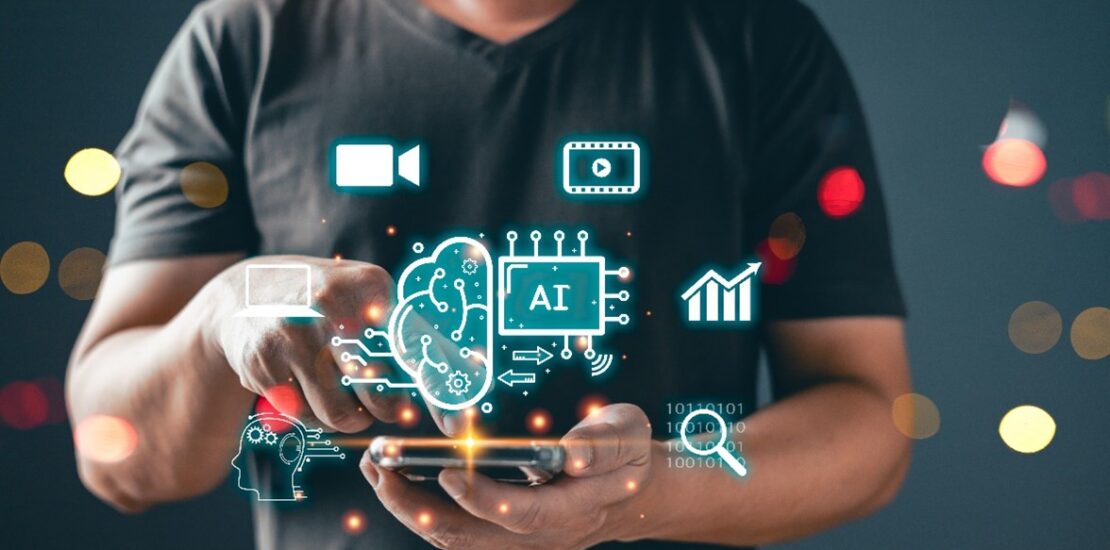- August 14, 2025
- Posted by: GMAS Team
- Category: Blog

In today’s competitive digital landscape, businesses are constantly searching for ways to improve efficiency, drive performance, and deliver more personalized customer experiences. Enter AI agents – autonomous systems designed to execute marketing strategies with minimal human input. Unlike traditional automation tools, AI agents go beyond following instructions—they observe, decide, and act to continuously optimize results.
In this blog, we will explore how AI agents are transforming the field of digital marketing and how you can begin using them to power your marketing and IT services strategy.
What Are AI Agents?
AI agents are smart, self-operating software programs that can make decisions and carry out tasks independently, without needing constant human supervision. Think of them as digital teammates, capable of planning, optimizing, and executing marketing activities across platforms such as email, social media, paid advertising, and customer relationship management (CRM).
Unlike traditional marketing tools that rely on human input at every stage, AI agents operate autonomously. They can analyze data in real time, identify patterns, predict customer behavior, and make decisions that improve campaign effectiveness.
How AI Agents Work in Digital Marketing
At the core of AI agents are powerful language models and machine learning algorithms. These systems connect to your marketing stack via APIs, allowing seamless integration with tools like Google Ads, Mailchimp, HubSpot, and various analytics platforms. They use past performance data, real-time customer interactions, and set business rules to optimize marketing actions autonomously.
For instance, an AI agent handling email marketing could:
- Monitor open and click-through rates.
- Identify declining engagement in specific segments.
- Create and send personalized re-engagement emails.
- Modify send times and message content based on real-time performance data.
All of this happens without human intervention, turning your digital marketing services into a self-optimizing powerhouse.
Why IT and Digital Marketing Services Need to Embrace AI Agents
Businesses offering IT services and digital marketing services stand to gain the most from AI agent adoption. Here’s why:
- Scalability: AI agents can handle thousands of tasks simultaneously, something even the most skilled team can’t match.
- Speed: Real-time optimization means your campaigns respond instantly to customer behavior and market shifts.
- Consistency: Unlike human teams that can be slowed by fatigue or oversight, AI agents operate around the clock with consistent accuracy.

Steps to Implement AI Agents
Assess Your Readiness
Before diving in, evaluate your current infrastructure:
- Data: Is your data clean, organized, and easily accessible?
- Technology: Are your marketing tools API-compatible?
- Team: Do you have team members with a basic understanding of AI and data analysis?
- Culture: Is your organization open to automation and process change?
Choose the Right Use Case
Start small with tasks that have high data availability and measurable outcomes. Ideal use cases include:
- Email campaign optimization
- Social media scheduling
- Paid ad performance monitoring
- Cross-channel budget allocation
These are ideal entry points that allow AI agents to demonstrate quick wins.
Adopt a Phased Implementation
Implement AI agents incrementally to build confidence and control:
- Phase 1: Augmentation – AI recommends actions, humans approve.
- Phase 2: Supervised Automation – AI executes routine decisions with human oversight.
- Phase 3: Strategic Partnership – AI handles cross-channel, full-cycle marketing decisions autonomously.
This phased approach helps mitigate risks and ensures smoother integration into your digital marketing services framework.
The Human-AI Collaboration
Despite their advanced capabilities, AI agents don’t replace marketers—they empower them. As AI takes care of repetitive, data-driven tasks, human marketers can concentrate on:
- Creative strategy
- Brand storytelling
- Customer relationships
- Ethical decision-making
This collaboration allows marketing teams to deliver higher impact with fewer resources. The AI agent becomes a “cybernetic teammate,” helping teams transcend traditional limitations.
Tools to Get You Started
Ready to bring AI into your marketing efforts? Here are some recommended tools:
- Zapier, Make, n8n: Visual workflow builders to automate tasks across apps.
- Taskade, Relay: Platforms for building and deploying AI agents across marketing workflows.
- Jasper, AdCreative.ai, PhantomBuster: Tools tailored for AI-driven content creation, ad management, and lead generation.
When choosing tools, prioritize integration, autonomy, and data privacy compliance.
Important Considerations
Before scaling AI agent adoption, keep in mind:
- Data quality is everything: Inaccurate data can lead to poor decisions.
- Human oversight is essential: Define clear rules, review exceptions, and ensure ethical use.
- Change management matters: Train your team to work with AI and establish feedback loops for continuous improvement.
AI is the Future of Digital Marketing
AI agents are redefining what’s possible in marketing. For IT service providers and digital marketing firms, they offer an opportunity to reduce costs, improve speed, and deliver superior results at scale. As these agents continue to evolve, the competitive edge will belong to organizations that learn to harness their full potential.
By combining human creativity with machine intelligence, you can build a future-ready digital marketing strategy that adapts, scales, and thrives.
